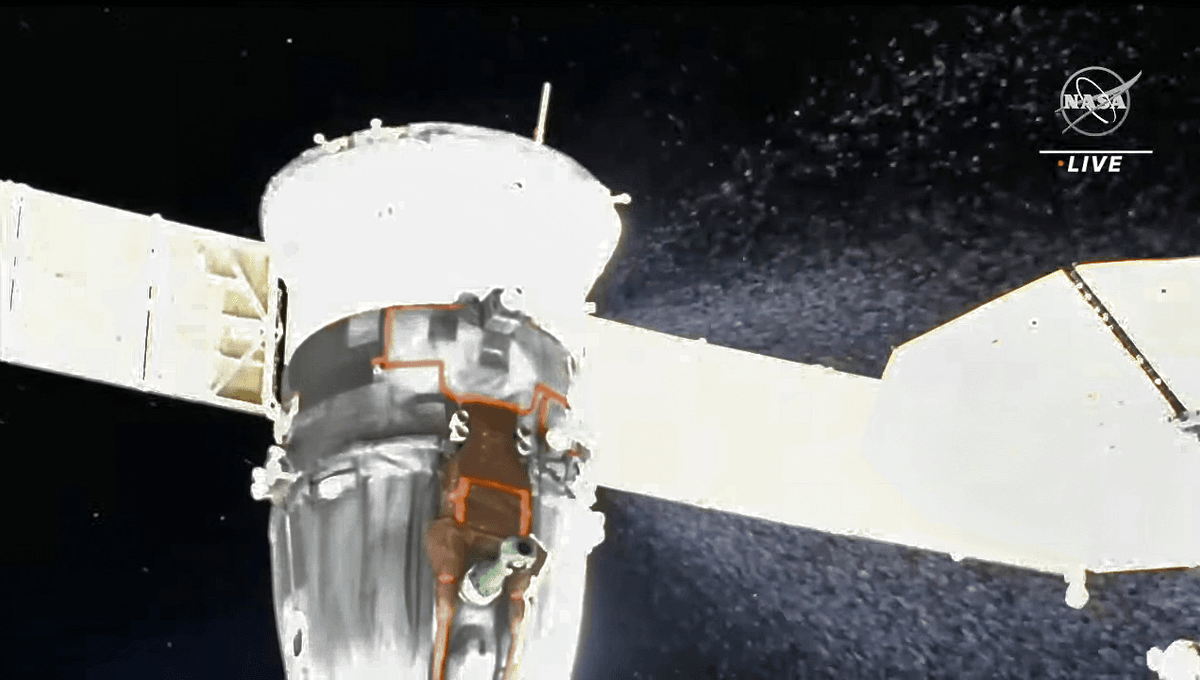
This isn’t how anyone wanted to test the body’s responses to long periods in microgravity, but problems with the Soyuz MS-22 rocket have left three people stranded aboard the International Space Station (ISS), and bringing them home won’t be quick.
Cosmonauts Sergey Prokopyev and Dmitry Petelin and astronaut Francisco Rubio arrived in September 2022 and were initially intended to return to Earth in March. A December leak in the cooling system of their return vehicle Soyuz MS-22 postponed a spacewalk and guaranteed a delay of unknown length. Now the Russian space agency Roscosmos has announced they will not be coming home until September.
Space experts and former astronauts have been calling for further investigation before those aboard the ISS are brought home. However, the Roscosmos announcement indicates it is the return, not the launch, of the rescue vehicle Soyuz MS-23 that will be delayed. Indeed the MS-23 has been transported to its launch complex in Baikonur and is expected to launch this Friday, February 24.
The decision to stick with the February launch date is a result of Roscosmos concluding the coolant leak was caused by a Geminid meteor, not a design flaw. However, the MS-23 will remain attached to the ISS for six months before bringing those on board home, the likelihood of a repeat micrometeorite strike having been assessed as small.
“Space missions always carry a huge risk of life-threatening emergencies for astronauts,” Roscosmos said in a statement. “Micrometeoroid impacts on a spacecraft or orbital station have happened before, but unlike with the Soyuz MS-22, they have never had such serious consequences.” NASA has reportedly indicated its agreement with the assessment.
“No country in the world has a surveillance system capable of tracking micrometeoroids of this size – about 1 millimetre (0.04 inches)” the statement continued. This is true, but fails to explain the coincidence of another leak on a Russian spacecraft, the Progress 82.
Because Progress MS-82 was for uncrewed cargo, it was still able to perform a useful function, carrying waste from the station to be safely dumped in the Pacific Ocean on Saturday. It’s mission was delayed for just 24 hours while Roscosmos investigated the coolant leak discovered the week before.
Human beings are considerably more sensitive to overheating than trash, and (hopefully) valued more highly, so no such risks will be taken with Prokopyev, Petelin and Rubio’s return.
The ISS is well stocked for events such as these. In 2021, Russia’s Pyotr Dubrov and the US’s Mark Vande Hei had their six-month ISS missions extended when they were asked to give up their seats home allowing for a Russian film crew to leave instead. Vande Hei went on to break the longest NASA spaceflight record, beating Scott Kelly’s record of 340 continuous days by 15 days.
The record for the longest space flight is held by Valeri Polyakov at 437 days. If the current plan is implemented, Prokopyev, Petelin and Rubio will be months short of that. However, having just had their intended time in space double, the trio may wonder if they can rely on the latest plans, or if they will become datapoints for the human capacity to reach Mars in good health.
Source Link: Soyuz Meteorite Strike Extends "Stranded" ISS Astronauts’ Mission Six More Months